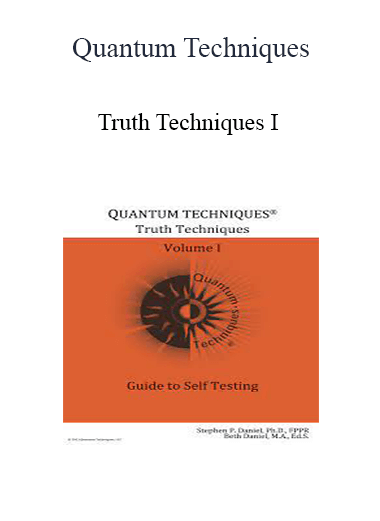[Download Now] Clinical Action for Dementia, TBI, Concussion, Stroke and Other Cognitive Declines: Assessment and Treatment Techniques for Cognitive Rehabilitation and Neuroplasticity – Sherrie All
[Download Now] Clinical Action for Dementia, TBI, Concussion, Stroke and Other Cognitive Declines: Assessment and Treatment Techniques for Cognitive Rehabilitation and Neuroplasticity – Sherrie All
[Download Now] Clinical Action for Dementia, TBI, Concussion, Stroke and Other Cognitive Declines: Assessment and Treatment Techniques for Cognitive Rehabilitation and Neuroplasticity – Sherrie All
Product Delivery: You will receive a download link via your order email immediately
Should you have any question, do not hesitate to contact us: support@nextskillup.com
Original price was: $199.00.$50.00Current price is: $50.00.
75% Off


Secure Payments
Pay with the worlds payment methods.

Discount Available
Covers payment and purchase gifts.

100% Money-Back Guarantee

Need Help?
(484) 414-5835
Share Our Wines With Your Friends & Family
Description
[Download Now] Clinical Action for Dementia, TBI, Concussion, Stroke and Other Cognitive Declines: Assessment and Treatment Techniques for Cognitive Rehabilitation and Neuroplasticity – Sherrie All
There is a sale page on the catalog.pesi.com.
The archive is at https://archive.fo/ludf5.
It is difficult to stay up to date with treatments that work and those that have been over-hyped in the treatment of dementia and brain related cognitive interventions. Patients are looking to you to help them separate fact from fiction when it comes to brain health and rehabilitation.
Using the latest science, Dr. All will teach you practical interventions to help your clients build and maintain cognitive skills. You will leave this recording with a comprehensive toolkit of evidence-based cognitive rehabilitation interventions and the skills you need to match them to the cognitive domains for which they are most effective.
Dr. All has over 15 years of clinical experience.
- Assess for cognitive decline and accurately interpret complicated assessment reports
- Determine when to refer out to a specialist for more detailed assessment
- Put the recommendations of a neuropsychological report into action
- Create actionable treatment plans to immediately start helping your clients
- Expand working memory and enhance attention, generalizing to real-world functioning
- Improve memory encoding, consolidation, and retrieval to improve client independence
- Expand executive functions including planning and problem solving to promote flexible thinking
- Improve visuospatial function and language to enhance client independence and social functioning
Practical and useful techniques can be used immediately in your practice. Start feeling confident that you can deliver the rehabilitation interventions your clients need.
- Evaluate the usefulness of cognitive screeners such as the MOCA and SLUMS versus when to refer out to a qualified neuropsychologist for a comprehensive neurocognitive assessment.
- Design treatment interventions based on realistic treatment goals and the evidence supporting compensatory vs. restorative strategies and determine the difference between cognitive stimulation, cognitive training and cognitive rehabilitation.
- Determine the impact of client anxiety and false beliefs to inform the clinician’s choice of treatment interventions and clinical outcomes.
- Utilize motivational interviewing techniques and appropriate selection of rehabilitation interventions to improve client engagement.
- Utilize specific interventions to enhance attention, memory, visuospatial, language and executive skill functioning to improve client level of functioning.
- Implement treatment interventions to improve holistic brain health in clinical settings.
Some brain games are not rehabilitation.
- Brain plasticity and the latest research
- Associated brain regions and functions
- Compensatory vs. restorative strategies
- Cognitive stimulation, cognitive training and cognitive rehabilitation
An assessment of the correlation between the number of days and the number of calories.
- What the MOCA and SLUMS are telling you and not telling you
- When to refer for a full neuropsychological assessment
- Make the most of assessment results including neuropsychology reports
- Static (TBI / stroke) vs. progressive decline (Alzheimer’s disease): Set and maintain realistic treatment goals
- Taking care to not “over-pathologize” concussions: Know the difference between concussion, TBI, CTE and dementia
- The use of mood and personality measures
There are apprenticeship opportunities for horses to rehabilitate.
- Motivational interviewing to cultivate engagement and brain health interventions
- Treat anxiety and false beliefs to improve cognition
- Adjustment to illness and grief: Counseling the brain impaired patient
There is a tool box for real world treatment strategies.
There is a working memorial.
- The neural bases of attention impairment
- Help clients understand working memory capacity as a means of improving metacognition
- Improve attention and reduce errors by following the DIRECT model and using PEAS & LEAP
- “Focused drilling” to expand working memory capacity and generalizing to other outcomes
- Mindfulness training to help clients shape attention and improve focus
There is a memory of thoroughness, enlightenment and recall.
- The neural bases of memory impairment
- Frontiers in Alzheimer’s disease management
- Tailor memory training interventions to level of severity & motivation
- Effective use of calendars and other external memory aids for effective daily functioning
- Elaborative encoding techniques using visualization, linking and chunking
- Memory aids in traditional psychotherapy treatments
- Strategies for effective recall of learned information
The function of the executive.
- The neural bases of executive function impairment
- Stroke and cerebrovascular disease
- Improve planning for greater goal attainment with the use of a reverse timeline worksheet
- Expand flexible thinking with 6-step problem solving
- The neural basis of stress management and emotion regulation
VISUOSPATIAL & LANGUAGE are related.
- The neural bases of visual and language impairment
- Useful Field of View Training (UFOV) for driving independence
- The “language wallet” for independence among people with aphasia
- Supported conversation and script training for aphasia
HOLISTIC BRAIN HEALTH INTERVENTIONS
- Shape the brain’s destiny: Cognitive reserve to build resistance and resilience to cognitive decline
- The impact of socialization on brain health and recovery
- Psychotherapy’s impact on brain health
- Effective cognitive stimulation: The truth about brain games & crosswords
- Teach clients how their brain works through metacognition intervention
There are risks and research.
Assessment and Treatment Techniques for Cognitive Rehabilitation and Neuralplasticity is a review of clinical action for dementia, concussion, stroke and other cognitive decline. Assessment and Treatment Techniques for Cognitive Rehabilitation and Neuroscience are included in the download. Clinical action for dementia, traumatic brain injury, concussion, stroke and other cognitive decline are assessment and treatment techniques for cognitive rehabilitation and neuralplasticity.
Delivery Method
– After your purchase, you’ll see a View your orders link which goes to the Downloads page. Here, you can download all the files associated with your order.
– Downloads are available once your payment is confirmed, we’ll also send you a download notification email separate from any transaction notification emails you receive from nextskillup.com.
– Since it is a digital copy, our suggestion is to download and save it to your hard drive. In case the link is broken for any reason, please contact us and we will resend the new download link.
– If you cannot find the download link, please don’t worry about that. We will update and notify you as soon as possible at 8:00 AM – 8:00 PM (UTC 8).
Thank You For Shopping With Us!
OUR BEST COLLECTION OF COURSES AND BOOKS

![[Download Now] Clinical Action for Dementia, TBI, Concussion, Stroke and Other Cognitive Declines: Assessment and Treatment Techniques for Cognitive Rehabilitation and Neuroplasticity – Sherrie All](https://nextskillup.com/wp-content/uploads/2022/05/Clinical-Action-for-Dementia-TBI-Concussion-Stroke-and-Other-Cognitive-Declines-Assessment-and-Treatment-Techniques-for-Cognitive-Rehabilitation-and-Neuroplasticity-–-Sherrie-All-1.jpg)



Reviews
There are no reviews yet.